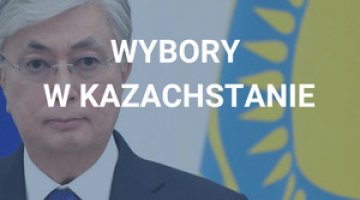Kazakhstan again toughens its policy towards investors in the oil and gas sector
The government of Kazakhstan’s most recent decisions (including cancelling the licences of several energy companies) show that, after a period of milder policy towards investors during the global economic crisis, Kazakhstan is returning to a policy aimed at increasing the state’s control over the energy sector and maximising the profits from it. The government in Astana is also trending towards increasing the participation of the state company KazMunaiGaz in the extraction of raw materials. It must be expected that together with the improvement in the economic situation, Kazakhstan’s government will intensify its policy of state protectionism towards the energy sector. Despite this, Kazakhstan is not threatened by any outflow of large foreign investments, because of the relatively profitable investment climate and the great potential for the extraction of oil and gas to rise.
The screw is tightened again
The policy of tightening the screw on foreign investors was initiated at the start of this decade, but was slowed down by the global economic crisis; it was resumed at the beginning of this year, when Astana declared that it would monitor all currently valid contracts for exploration and extraction (around 170 in number). As a result, on 22 July several licences were cancelled (including that for Max Petroleum), and around 100 warnings were issued to oil companies operating in Kazakhstan. This is a departure from Astana’s previous milder policy of renegotiating the conditions of contracts with those companies which had had problems complying with regulations.
Apart from this, on 14 July the government raised the customs duty on the export of oil from zero (which it had been since January 2009) to US$19 per ton, and applied it to all producers (previously, only around half of exported oil was subject to any customs duty). This decision provoked resistance from the biggest oil producers, the Tengizchevroil consortium and Karachaganak Petroleum Operating (KPO); their contracts (of the Production Sharing Agreement type), which had been agreed in the 1990s, had guaranteed their exemption from the obligation to pay the customs duty.
In addition, Astana began criminal proceedings against the biggest extraction consortia, KPO and Tengizchevroil. In July, the latter was accused of exceeding its limits for extracting oil by US$1.4bn. In the case of KPO, the government’s aim is to force the consortium to sell the state company KazMunaiGaz some of its shares (on the order of 10 to 30 per cent) in Karachaganak, one of the three biggest deposits in Kazakhstan. As for Tengizchevroil, Astana wants to break down the consortium’s resistance to paying the customs duty, and also probably to convince it to follow the options for exporting oil which Kazakhstan’s government supports (for example, transporting oil via the terminal at Batumi, Georgia, which KazMunaiGaz controls).
The actions of the government have until now mainly threatened the Western oil companies which first invested in Kazakhstan (in the 1990s, when the government was weak and urgently needed investments), and which until now have enjoyed especially beneficial terms of investment.
Moreover, the results of the new policy will relatively hit the small extraction companies most strongly; during the global economic crisis, they wrestled with their lack of funding, which meant they could not meet their commitments in time.
Return to the old strategy
Astana’s current policy towards foreign investors is a return to, and development of, the strategy employed since the beginning of this decade of increasing its supervision of the energy sector and maximising profits. Amendments to the law made between 2005 and 2007 served this aim. During the global economic crisis, however, Kazakhstan eased its strict policy towards this sector (including by reducing the duty on the export of oil to zero), in order to help investors endure the dramatic fall in price of oil. Currently Astana is returning to its former strategy, and is focusing above all on maximising its profits from the energy sector. This aim is to be achieved by raising the duties on exporting the raw materials, and also increasing KazMunaiGaz’s share in oil extraction within the country, by having it join the largest extraction companies. Astana is probably modelling its policy on the actions of the Russian government, although it is copying that strategy in a milder form. It is important to note that the appearance of alternative sources of investment in the extraction sector has been conducive to this harsher approach towards Western investors. – Above all, this concerns Chinese companies, which consent to the range of demands which Astana makes. The development of cooperation with China has been aided by the economic crisis, during which the Middle Kingdom has grown to be Kazakhstan’s biggest economic partner.
Consequences
The actions Astana has been taking are worsening the investment climate in the country (the violation of the contracts from the 1990s has called into question whether Kazakhstan does indeed respect the contracts it agrees to). Despite this, Kazakhstan is not threatened by any outflow of large foreign investments, because against the background of neighbouring Russia, the investment climate is still relatively profitable. Investors are also encouraged by the very good outlook for growth in raw material extraction (from the current figure of around 80m tonnes of oil to 180m tonnes annually over the next decade), and also by the fairly flexible policy towards the sector (the best proof of this is that the reaction to the fall in the price of oil in September 2008 was much quicker than in Russia, and also that the customs duty was reduced). An effect of this policy, on the other hand, may be a fall in interest in investing in Kazakhstan among small companies with less capital, which do not have direct contact with the government in Astana. In the future, Astana must be expected to continue and sharpen its policy of state protectionism towards the energy sector.




